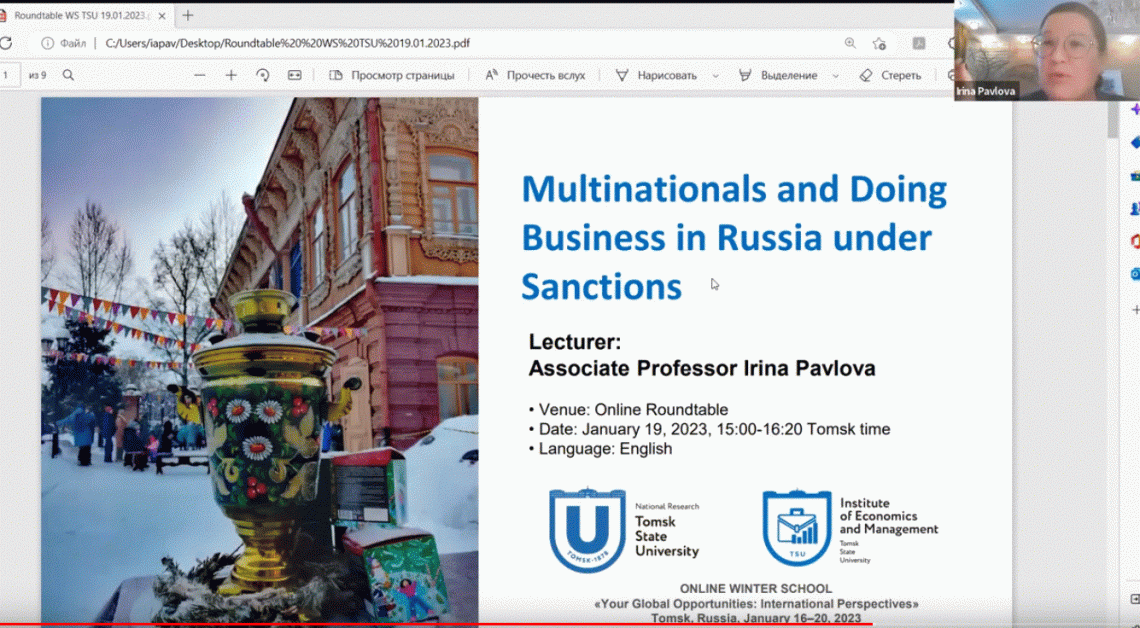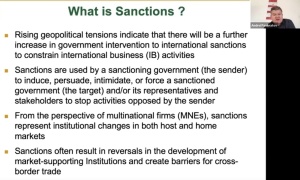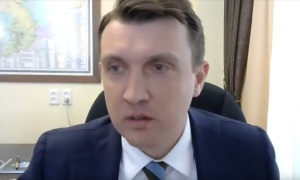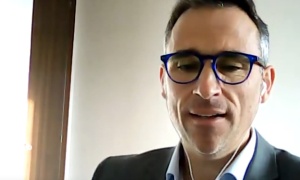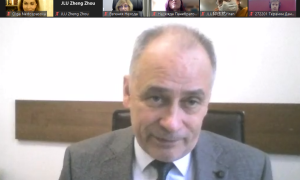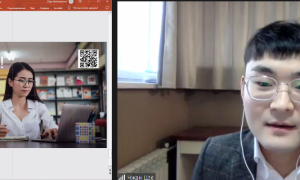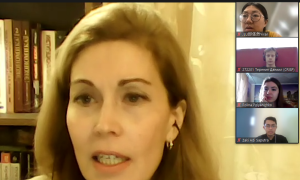
Listeners from 26 countries participated in winter school on international management and marketing at IEM
The international Winter Online School on international management and marketing took place at IEM. Over the course of 5 days, listeners from 26 countries (Russia, Kazakhstan, Uzbekistan, China, India, Indonesia, Turkey, Myanmar, Afghanistan, Yemen, Pakistan, Bangladesh, Iran, Syria, Jordan, Egypt, Ecuador, Nigeria, Uganda, Ghana, Sierra Leone, Rwanda, Somali, Tunisia, Ecuador, Ethiopia, Peru) were solving practical cases, working in international teams, participating in master classes held by international experts and lecturers of the International Management master's program.
The central event of the School was the International Management in Time of Turbulence round table, which was attended by approximately 100 people.
Taking into account the diversity of multinational audience of the Winter School, speakers have focused on global transformation of business environment, new forms of international cooperation, state support of business, opportunities for developing innovation capacity in response to sanctions, access of business to new markets in CIS, Southeast Asia, Africa, Latin America, which have vast and unexplored opportunities.
The round table was opened by Vasily Potemkin, Deputy Governor of the Tomsk Region for Investment Policy and Property Relations, who outlined business opportunities in the region at the present time. His colleague Alexey Stukanov, head of the Department of International and Regional Relations, told about the changes in the forms and methods utilized by authorities to support international projects.
Roberto Bruni, Professor of the Department of Economics and Law at the University of Cassino and Southern Lazio (Italy), a long-time IEM partner, in his report "Marketing Framework and Turbulence" elaborated on the new role of marketing not only for business, but also for modern society as a whole. Andrei Panibratov, Director of the Center for Russian Multinationals and Global Business at the Graduate School of Management of St. Petersburg University, focused on the theoretical and methodological understanding of the nature and variants of the impact of sanctions on international business. Sandeep Sharma, Professor of Swiss School of Applied Sciences for Economics and Management spoke about the transformation of global supply chains happening in recent years and their possible consequences, and Julia Shavruk, Dean of the Faculty of International Business Communications of the Belarus State Economic University, noted the importance of strategic approach to the implementation of key management functions even in conditions of sharply increased uncertainty of external environment.
The plenary part of the round table concluded with the report "Multinationals and Doing Business in Russia under Sanctions" by IEM Associate Professor Irina Pavlova, which analyzed relevant cases demonstrating a wide variety of ways for international companies operating in Russia to respond to changes in the usual business environment.
The speakers advised the students not to forget the importance of strategic vision, the need for analysis and risk management, the ability to work in multicultural teams even in today's extraordinary circumstances.
“It’s not a secret that modern business in recent times is in a state of extreme uncertainty: demographic and technological shifts, consequences of COVID-19 pandemic, unprecedented sanction pressure are just several of the factors that define the “perfect storm” in management. Based on the current situation, the topic of the round table was made to be as broad as possible, as we tried to cover the maximum amount of problem areas that are important and interesting to practically every person,” notes Professor Olga Nedospasova, Head of the International Management master’s program. “The listeners of the Winter School who participated in the round table could hear the opinions of serious experts from the academic and professional communities. For this, we invited colleagues from other countries and famous Russian universities, representatives of public authorities, colleagues from various departments of TSU to participate in discussion of relevant problems of business.”
As the Winter School shown, there is a great deal of interest to the International Management master’s program. In 2023, there are 15 state-funded places that can be claimed by not only Russian citizens, but also by students from near abroad. The program also traditionally has a lot of interest from overseas students. Young people can enroll on the program, among other ways, through taking part in the “TSU Master” Olympiad.
More on the International Management program
